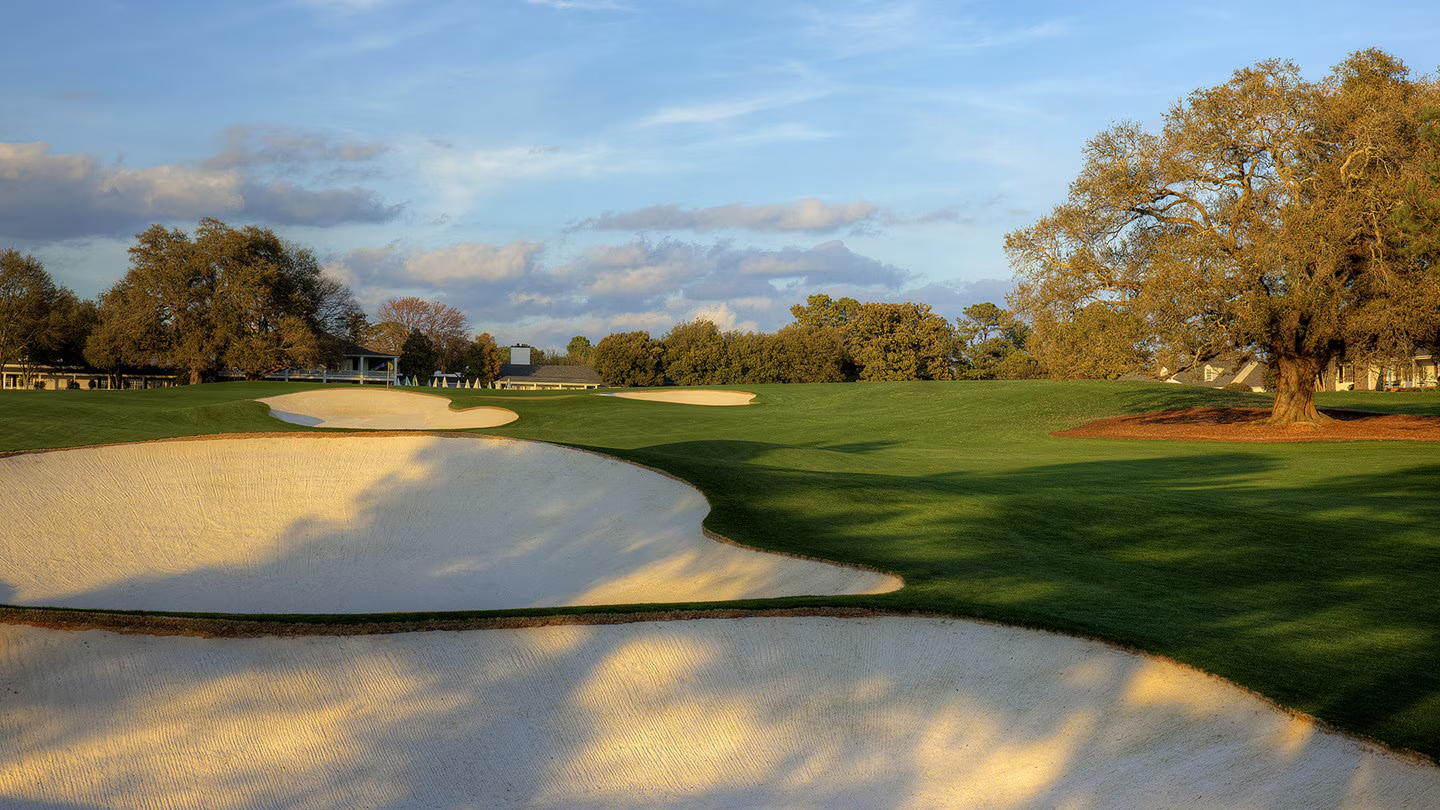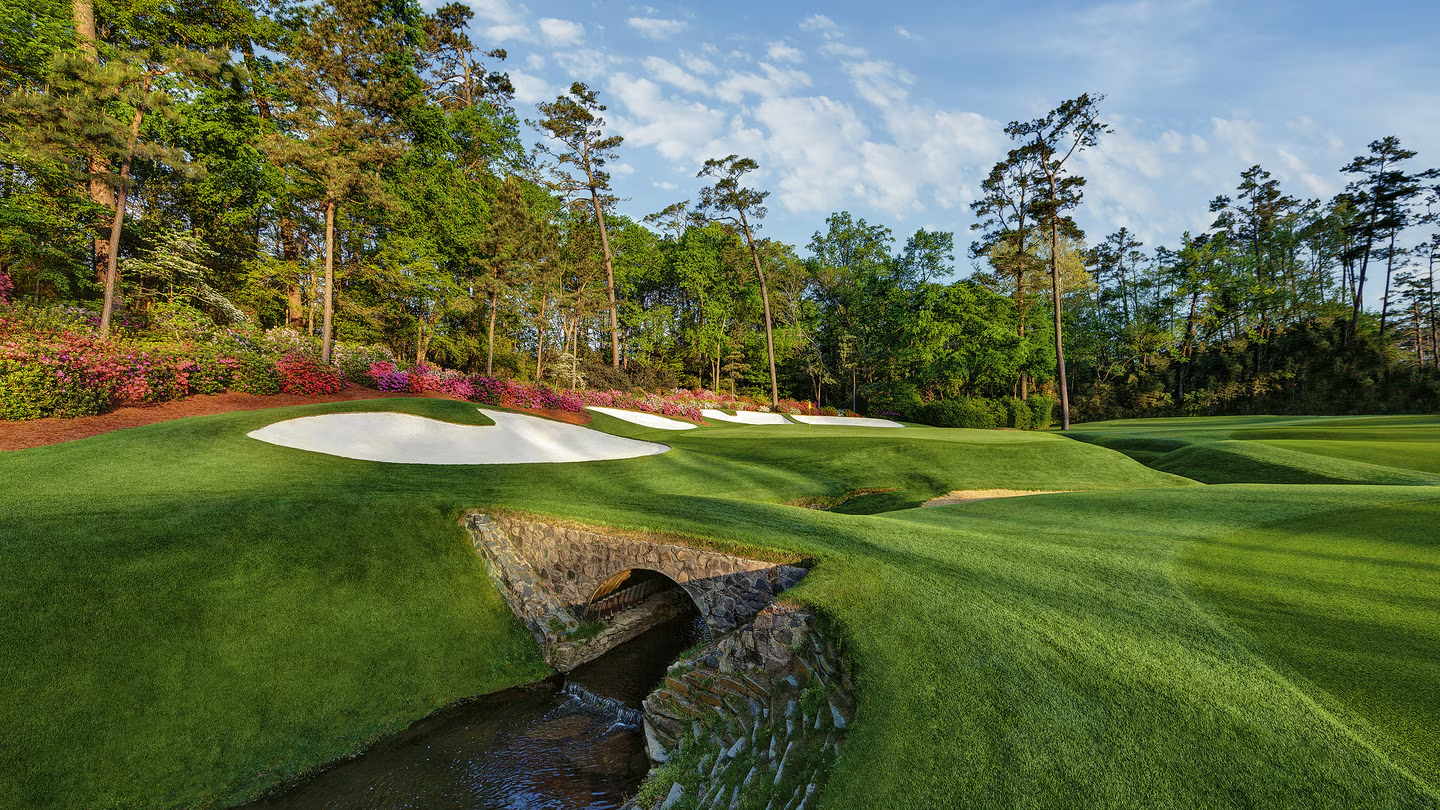This week, more than ever before, professional golf needed an event that would make it forget itself and the numerous issues currently infecting it: division, greed, pettiness, and, of course, tone-deafness. If, in terms of popularity and accessibility at least, golf at the grassroots, amateur level has never been healthier, at the professional level, conversely, to most it has never been less appealing, especially to those who merely keep one eye on professional golf like myself. In short, it needed the magic of sport: the unscriptable, ethereal magic that only sport can provide. It needed, for example, Lionel Messi to lift the world’s eyes from the bloodstained carpet upon which the 2022 world cup was staged. For Federer and Nadal to go toe-to-toe for five sets at Wimbledon. For Manning and Brady to go drive-for-drive for 4 quarters.
This week, more than ever before, professional golf needed its heroes to vanquish its pantomime villains; yet its pantomime villains, according to mainstream view of things now, largely drifted from relevance at Augusta about when the dj-curated set filling the air begins to wind down each week on that tour, somewhere around 50 holes. And unfortunately, heroes, legitimate, transcendently captivating ones, aren’t spurned regularly, in predictable intervals. There was a lull between Jones and Hogan, and a longer one between Jack and Tiger, who, unsurprisingly, again provided the week’s most riveting theatre, as he crafted and manoeuvred his aching, barely-functioning frame around the 7500 yards of the golf course, then sought advice from his son, who doubled as his swing coach, on the range prior to his final round. Once golf’s superlative dominating force, time, in combination with the hands of chance and various surgeons, have turned him into its most appealing technician, its most endearing craftsman, and perhaps the last.

This week, more than ever before, it needed Rory, first and foremost, to rise to the fore, as he did at St. George’s the week when the LIV-related brouhaha truly began. Unfortunately, Augusta National isn’t dead flat, with soft fairways and featureless greens, which effectively renders Rory incapable of winning come major time (just see, if you so choose, where and under which conditions he won his four). I hate to say it, because he is one of men’s golf’s three legitimate needle movers (along with Tiger and Phil) and from a distance a genuinely easy guy to root for, but, until proven otherwise, Rory has become a flat-track bully.
Right now, however, Scottie Scheffler is the hero who answers the call in the sky; unfortunately, to watch him do so is about as riveting as watching Val Kilmer answer the bat signal. In terms of comparisons, Scottie is cut from the similar cloth to Nick Faldo. And this is no knock either against him, for he is, after, all merely himself; and all that anyone asks for, above all, is for people to be themselves. “He never seems to change his demeanour,” claimed Verne Lundqvist, in one of the last lines of his long and storied career perched above 16 green. “He never looks different,” added Ian Baker Finch shortly after, while Scottie strode nonchalantly as ever to the 18th tee box, as if he was playing with his friends back in Dallas. “Scottie has the discipline to adhere to one of the fundamental tenets of golf: scoring is more about minimizing mistakes than maximizing moments of heroism,” surmised TFE.

True as that may be, and conducive as such an even-keeled game and approach are to winning majors, in fact lots of them, good simply writes white, writes flavorless. That’s why we remember villains; and why we, as a society, are so addicted to melodrama, and to flawed characters who dig themselves from the dirt and vanquish whatever had knocked them down. And Scottie is undoubtedly good, in fact very good, both on and off the golf course: likely the most complete golfer since Tiger. However, unlike Tiger, on his way to winning, Scottie isn’t apt to blow one way, way right, to stand on the cart path and hack it to the back edge of the green through a state-sized exploding divot with one foot flying in the air, and to then roll in a cross green putt, emphasized by a sideways gallop and a slashing uppercut in front of a golf crowd turned momentarily into an S.E.C one. Nor (and for the better) is Scottie likely to hit a fire hydrant and have his life unravel anytime soon. To the very inch, his game, as well as his life seem under supreme control, endlessly repeatable, a world away from our own flawed ones; as evidenced by his most interesting trait being the fact that he slides his feet a few inches during his golf swing. He just seems like the kind of dude who’d walk up to you at the Grocery Store and talk about the new lawn care product he deployed, or the new spice that he added to his favorite marinate, before going to bible study on his way to shooting 58 at his home course.
Even the potentially interesting side plot of the impending birth of his child has been done before, and more rivetingly, too, by Phil and Amy Mickelson at Pinehurst in 1999. Along this line, professional golf, right now, feels a lot like a sitcom that has gone on five seasons too long, with its best actors either having long ago left for other projects, or, otherwise, having overstayed their welcomes, their shticks and characters being now too familiar to elicit any strong reactions on the part of the audience, with no new blood to truly reinvigorate the show.

Having the game reduced by the equipment manufacturers to a contest of mindless wedges into par 4s and spineless, curveless long irons into par 5s, also does not bring much inherent interest to the largely vanilla crew headlining the tour’s cast now. Along this line, then, like all aspects of the tournament, the golf course, itself, almost seems too tailored towards providing the “ideal”, eminently fair major championship test, where birdies are possible but bogeys will also be punished; where the hottest ball strikers at that very moment, because of the calculated-to-the-inch setup and flawless conditioning, will rise to the fore: Scheffler, Rahm, Scheffler again, and Matsuyama over the last four years, at -10, -12, -10, and -10 respectively. To me, I’ve always said that the best setups are apt to highlight the best winner, at precisely this very range of score; but once in a while, we yearn for something different, for something out of the blue, and we haven’t had it in a while at Augusta. In effect, this event felt a lot like the recent Premier League title-deciding showdown between Pep Guardiola’s Manchester City and Mikael Arteta’s Arsenal, which ended in an overly cautious, nil-nil draw with a thousand sideways passes and no individual flare breaking through the regimented-to-the-very-inch systems of both Spaniard coaches. For the tactician or the purist among us who loves studying defensive structures, such a showdown may, in fact, be riveting, but in terms of pure theatre, the very reason that we turn to sports for diversion, it falls short.
And as much some will have to try to paint this event as one with lasting appeal, the fact of the matter is that most of us will forget any of its individual moments within a few weeks. Looking back, it’ll be yet another indistinct notch pierced into Scottie’s ever-growing belt of conquests.
For the worse, far more than the actual playing of the tournament, I tend to think that we will all remember Jason Day’s eye-torturing Malbon outfits (you know, just a hint guys: if you want to open the gates, it’s usually best not to tell the keepers to screw-themselves as you knock), or Greg Norman sauntering outside of the ropes, like a would-be despot gathering support in the countryside before storming the capital, after not being able to secure a pair of tickets through more traditional avenues, or even that we don’t remember much anything of it at all. So, in effect, everything we don’t want to be reminded of regarding the current state of professional golf, which, starting again now, reverts back to normal proceedings.


